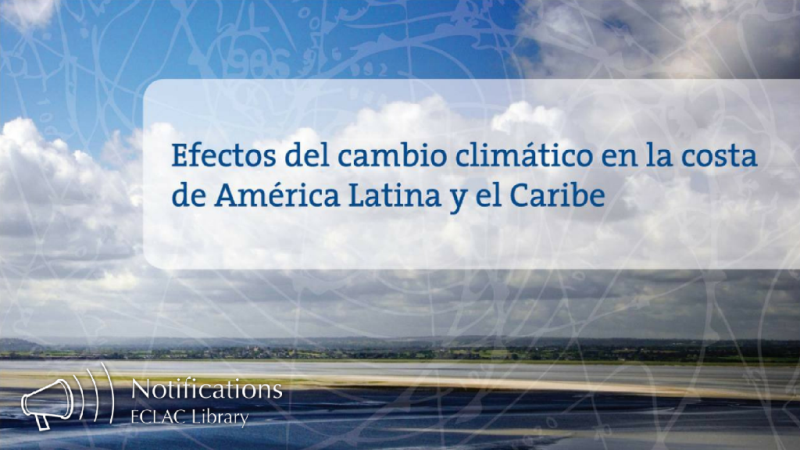Briefing note
As part of a joint project, the Economic Commission for Latin America and the Caribbean (ECLAC), the Spanish Climate Change Office of (part of the Ministry of Agriculture, Food and the Environment of Spain), and the Environmental Hydraulics Institute of the University of Cantabria have developed a specific methodology for assessing impacts of climate change on coastal areas, which is available to the countries of Latin America and the Caribbean.
This methodology allows the analysis of changes in the coastal dynamics, the influence of climate variability, and information on coastal vulnerability (environmental and socioeconomic), impacts and foreseeable risks for the 72.182 km of the region’s coastline. The results of the project are displayed into four main publications and two supporting documents.
Additionally, the project has developed a web viewer which presents the results on georeferenced spatial resolution of five kilometers across the coastline of the region. The database contains information about coastal dynamics and trends, sea level, maximum waves caused by hurricanes, meteo-oceanographic dynamics; as well as information on vulnerability and exposure levels of ecosystems surface (m2), land area 1-10 m (m2), urban area 1-10 m (m2) and evaluation of ecosystems (dollars), among others.
It is suggested to use Mozilla Firefox o Google Chrome to access the web viewer.
Further information about the project on the web site of ECLAC.



